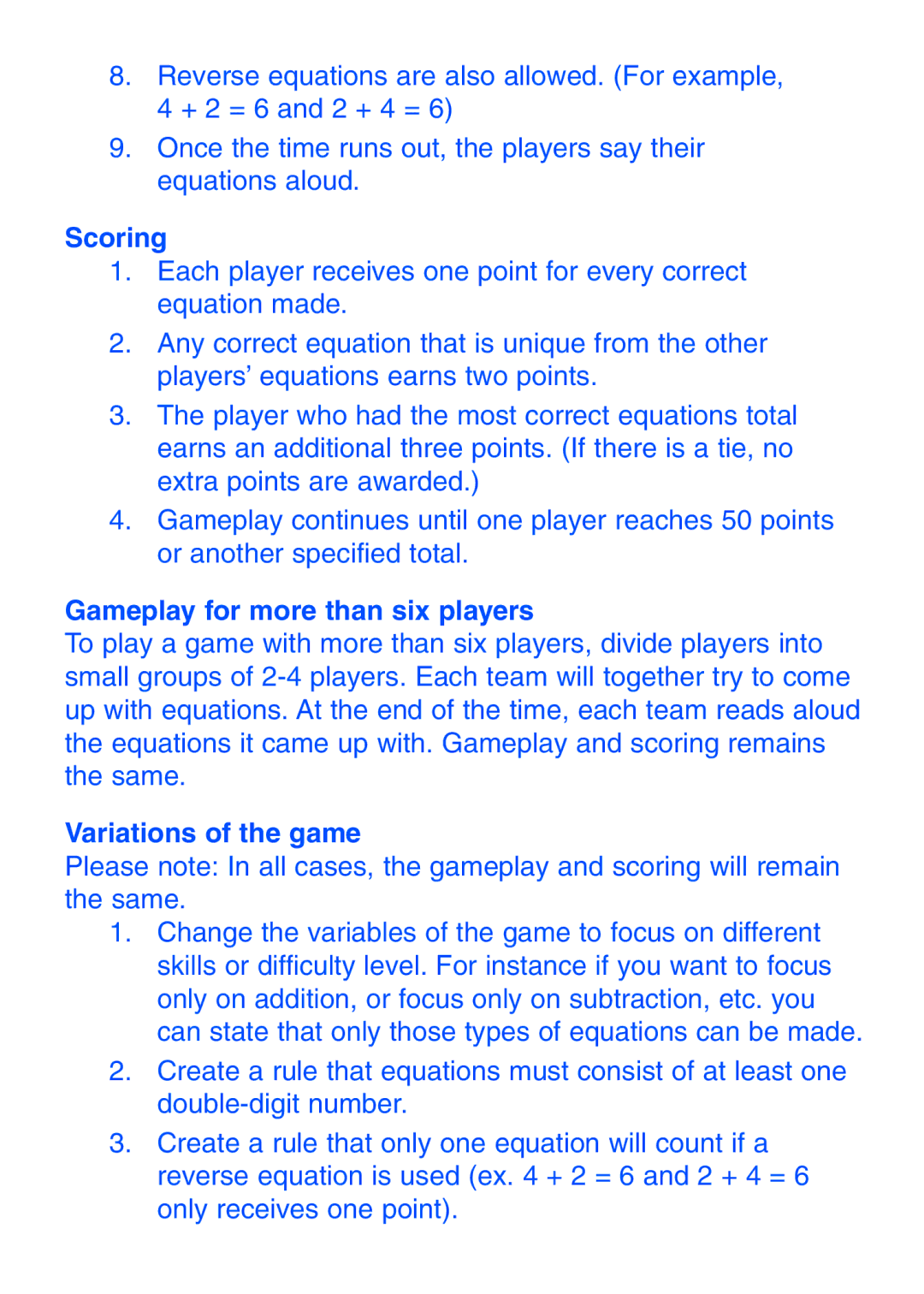8.Reverse equations are also allowed. (For example, 4 + 2 = 6 and 2 + 4 = 6)
9.Once the time runs out, the players say their equations aloud.
Scoring
1.Each player receives one point for every correct equation made.
2.Any correct equation that is unique from the other players’ equations earns two points.
3.The player who had the most correct equations total earns an additional three points. (If there is a tie, no extra points are awarded.)
4.Gameplay continues until one player reaches 50 points or another specified total.
Gameplay for more than six players
To play a game with more than six players, divide players into small groups of
Variations of the game
Please note: In all cases, the gameplay and scoring will remain the same.
1.Change the variables of the game to focus on different skills or difficulty level. For instance if you want to focus only on addition, or focus only on subtraction, etc. you can state that only those types of equations can be made.
2.Create a rule that equations must consist of at least one
3.Create a rule that only one equation will count if a reverse equation is used (ex. 4 + 2 = 6 and 2 + 4 = 6 only receives one point).
